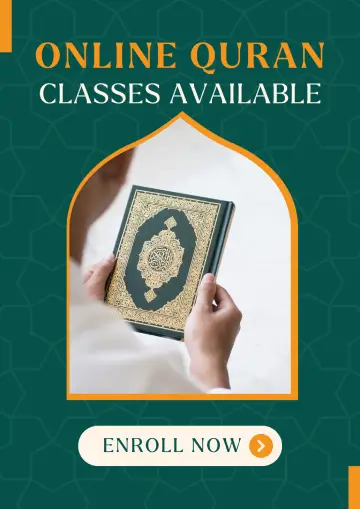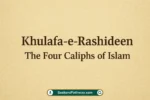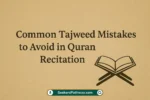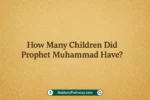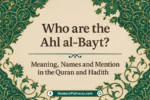The Final Act of Ramadan
As the month of Ramadan reaches its end, it presents every believer with one final chance to complete their fast and benefit their community, through the obligation of Sadqat-ul-Fitr, or Zakat al-Fitr.
This special charity cannot just be an action because you want to donate your zakat, but because you want your Ramadan to end in a good state of wholeness. Not just a purification for the fasting individual, it is also nourishment for the needy, thus making every member of the community able to participate in the Eid celebrations.
Ibn Abbas (RA) reported:
“The Messenger of Allah ﷺ made Zakat al-Fitr obligatory as a means of purifying the fasting person from idle talk and bad behavior, and to provide food for the poor.”
(Abu Dawood)
What is Sadqat-ul-Fitr?
Sadqat-ul-Fitr Every Muslim who has more than he can possibly eat and drink at Eid must give the amount of Sadqat-ul-Fitr at Eid. It differs from normal Sadaqah or Zakat al-Mal.
Its main goals are twofold:
- To purify the fast from all imperfections.
- So that even the poor and needy have a chance to celebrate Eid like the rest of society.
- This kind of charity creates a strong feeling of social equity, where any economic disparity vanishes on a day dedicated to communal celebration.
Who Must Pay It and For Whom?
- It is mandatory upon all Muslims, men, women, including children, and even newborns.
- The head of the household pays on behalf of all dependents.
- It is to be given by anyone with enough wealth beyond their needs and debts, even if they do not have to give Zakat al-Mal.
How Much Is Sadqat-ul-Fitr?
The amount is traditionally calculated based on staple food items like wheat, barley, dates, or raisins, around 2.5 to 3 kg per person.
Today, scholars help translate this into its monetary equivalent, depending on local prices and the cost of available food items. It thus makes it easier for people to meet the obligation, and more useful for those on the receiving end.
For example:
If wheat is the benchmark and 3 kg sells for $5, then a five-person family would pay $25.
The standard amount based on current rates is usually announced by your local mosque or Islamic organization.

When Should It Be Given?
Sadqat-ul-Fitr should be paid before the Eid prayer. This ensures that the destitute are able to prepare for Eid and enjoy its blessings.
The Prophet ﷺ said:
“Whoever gives it before the Eid prayer, it is an accepted Zakat, and whoever gives it after the Eid prayer, it is just a regular charity.”
(Abu Dawood)
Therefore, the best time to pay is in the last days of Ramadan, and particularly the night of 28 or 29 or before going out to attend Eid prayer.
Who Can Receive Sadqat-ul-Fitr?
Sadqat-ul-Fitr can only be given to the same people as Zakat, the poor, needy, and impoverished. This should be given to your local community to help people in your local community, so you can celebrate Eid without worry.
Conclusion: Closing Ramadan with Generosity
Sadqat-ul-Fitr is the last stitch in the spiritual cloth of Ramadan. It shows us that fasting is not only personal, it’s communal. This is why worship is incomplete without compassion. And that celebration rings hollow if not everyone is included.
When you give Sadqat-ul-Fitr with honour and immediately, you free your fast from its vices, help ease the burden of another, and enter Eid with a clear heart and mind.
Let us give with intention. Let us share with love. Let us conclude Ramadan as we started it in pursuit of Allah’s pleasure and giving from what we love. Ameen.


